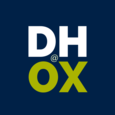Workshops 2012
1. An Introduction to XML and the Text Encoding Initiative
This introductory workshop will balance lectures with hands-on practical sessions
to
introduce the recommendations of the Text Encoding Initiative (TEI) for encoding of
digital text. The workshop combines in-depth coverage of the latest version of the
TEI P5
Guidelines for the encoding of digital text with practical exercises to reinforce
the
topics covered. It provides an introduction to mark-up, explanations of various aspects
of
the TEI Guidelines and approaches to publishing TEI texts. Major aspects surveyed
will
include: basic TEI elements, metadata, names of people and places, manuscript
transcription and description, linguistic analysis, and customisation of the TEI.
Numerous
practical exercises expose you hands-on experience of a wide range of TEI editing,
customisation, and publication.
Tutors: James Cummings, Renée Baalen, Ylva Berglund-Prytz
All materials are available as: IntroToTEI.zip
2. Working with TEI Texts (Advanced)
This advanced workshop will teach how to do something practical with your TEI XML
texts
beyond simply converting them to HTML and putting them on the web. A mixture of talks
and
practical exercises will take participants through:
- Advanced validation and integrity checking using TEI ODD, Schematron and XSLT
- Transforming your TEI XML to formats other than HTML (Word, ePub, LaTeX etc)
- Extracting data from TEI texts for further analysis (eg names and places)
- Processing some more complex TEI documents (eg genetic encoding and timelines)
- Storing TEI documents in an XML database and querying them
Requirements: You must already have a good basic knowledge of XML,
TEI and some familiarity with programming/scripting ideas. Most of the work will be
based
on XSLT and XPath.
Tutors: Sebastian Rahtz, Raffaele Viglianti
All materials are available as: AdvancedTEI.zip
3. An Introduction to Digital Humanities Tools and Approaches
This workshop will introduce key research areas in the digital humanities, including
language tools, text mining, image analysis, and use of geo-spatial data. The lecture
sessions will emphasize the research potential of each area, discuss the theoretical
implications of modelling data through these methods, and provide guidance about how
these
techniques are most usefully adapted to humanities research. The workshops will focus
on
actively addressing research questions, providing datasets and guidance on how to
begin to
conduct research with these tools. The course is conceived as a wide-ranging introduction
to some of the most exciting areas in digital humanities research, and will enable
its
participants to quickly become familiar with the possibilities and processes of conducting
research in these areas.
- Monday -- Martin Wynne
Lecture: Corpus and Text Analysis
for Research in the Humanities
Workshop: Dealing with the Data Deluge: Corpus
Linguistics for Text-Based Research - Tuesday -- Glenn Roe:
Lecture: The Dangers and Delights of Data Mining
Workshop: A Practical
Introduction to Text Mining - Wednesday -- Lou Burnard:
Lecture: Introduction to Markup
Workshop: TEI a la Carte - Thursday -- Segolene Tarte:
Lecture: Working with Digital Images
Workshop: Exploring and Extracting
Information from Imagestarte_digitalImages.doc;
tarte_exploringExtractingInfoFromImages.pdf;
tarte_workingWithDigitalImages.pdf; - Friday -- Chris Green:
Lecture: Don't Waste Space: How GIS can Aid Digital Humanities Research
Workshop: Spatial Awareness: A Brief Introduction to ArcGIS
Tutors: Erin Snyder, Christopher Green, Glenn Roe, Segolene Tarte, Martin Wynne
4. A Humanities Web of Data: Publishing, Linking, Querying and Visualisation on the
Semantic Web
The work of a digital humanities researcher is informed by the
possibilities offered in digital resources: in their ever increasing
number and their distribution and access through the Internet.
In this context, the Semantic Web can be seen as a framework to enables
radical publication, sharing, and linking of data for, and by,
researchers.
This workshop will introduce the concepts and technologies behind the
Semantic Web and show how to publish your research so that it is
available as Linked Data and how to use distinct but interwoven models
to represent services, data collections, workflows, and -- so to
simplify the rapid development of integrated applications to explore
specific findings-- the domain of an application. Topics covered will
include: the RDF format; modelling your data and publishing to the web;
querying RDF data using SPARQL; choosing and designing vocabularies and
ontologies; and more.
The workshop comprises a series of lectures and tutorials including:
- The Semantic Web and Why You Should Care
- Scaling Digital Humanities on (and utilising) the Web
- The Internet, Web, and Beyond (invited lecture, Prof. Yorick Wilks)
- Practical Linked Data for Digital Humanities Researchers
- Worked examples of Semantic Web systems and application for Digital
Humanities:- CLAROS: The world of art on the semantic web
- Music Information Retrieval: How country is my country?
- Solutions surgery: how could the Semantic Web aid your research?
Tutors: John Pybus, Alexander Dutton, Kevin Page
page_l1_tswawysc-20120629.pdf;
page_l2-20120601.pdf;
page_l3-20120702.pdf;
page_l5-20120601.pdf;



